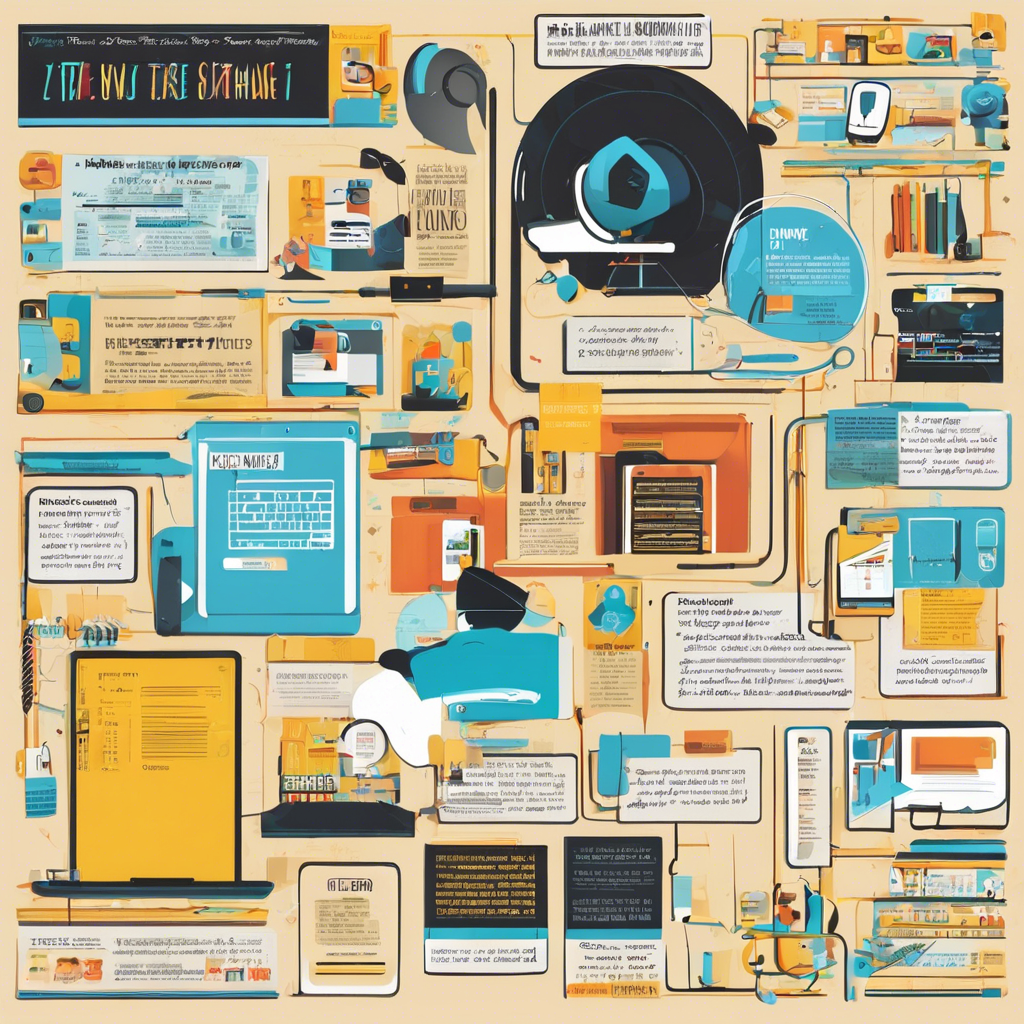The internet has transformed learning, making knowledge accessible to anyone with a connection. Whether mastering a new skill, diving into academic subjects, or staying updated on industry trends, online resources provide an unparalleled wealth of information. However, the challenge lies in filtering through this vast digital landscape to find high-quality content, staying motivated, and effectively applying what is learned.
Finding Reliable Resources
The first step in learning online is identifying trustworthy sources. With the internet flooded with information, distinguishing between credible and misleading content is essential.
- Educational Platforms – Websites like Coursera, Udemy, Khan Academy, and edX offer structured courses from reputable institutions. These platforms provide certificates, interactive exercises, and expert-led video lectures.
- Official and Government Websites – Many official organizations publish authoritative resources. For example, NASA provides space science education, and the World Health Organization offers medical and health-related information.
- Peer-Reviewed Articles and Research Papers – Google Scholar, ResearchGate, and PubMed host scientific and academic research papers, ensuring a high standard of accuracy.
- Reputable Blogs and News Outlets – Well-known media sources such as The Washington Post, BBC, and National Geographic publish educational content that is fact-checked and backed by expert insights.
- Community-Driven Platforms – Websites like Stack Overflow (for programming), Quora (general knowledge), and Reddit (specific subreddits) allow experts to answer real-world questions.
Developing a Learning Strategy
Merely accessing information is not enough; structured learning is key to retention and mastery.
- Set Clear Goals – Define what you want to achieve. For example, instead of vaguely aiming to “learn programming,” specify that you want to “build a personal finance app using Python in six months.”
- Create a Learning Schedule – Allocate specific time slots for studying. Consistency is crucial, even if it’s just 30 minutes a day.
- Use Multiple Formats – Engage with different content types, such as video tutorials, articles, podcasts, and interactive quizzes. This keeps learning diverse and prevents boredom.
- Take Notes – Summarizing key points in your own words improves understanding and recall. Apps like Evernote, Notion, and OneNote help organize digital notes efficiently.
- Join Online Study Groups – Platforms like Discord, Facebook Groups, and LinkedIn communities connect learners with peers, fostering discussions, clarifications, and shared resources.
Avoiding Distractions
The internet is a double-edged sword—while it offers unlimited knowledge, it also presents endless distractions.
- Use Productivity Tools – Apps like Forest, Freedom, and Cold Turkey block distracting sites and help maintain focus.
- Follow the Pomodoro Technique – Study for 25-minute intervals, then take a 5-minute break. This method improves concentration and prevents burnout.
- Organize Your Learning Environment – A clutter-free digital and physical workspace minimizes distractions. Use browser extensions to declutter your screen by removing unnecessary ads and pop-ups.
- Turn Off Notifications – Social media, email alerts, and messaging apps can break focus. Setting “Do Not Disturb” mode while studying can enhance concentration.
Mastering a Skill vs. Passive Learning
Many online learners passively consume content without truly mastering it. To deeply understand and apply knowledge, use the following techniques:
- Teach What You Learn – Explaining concepts to someone else reinforces understanding. You can write blog posts, create explainer videos, or participate in discussions.
- Apply Learning Through Projects – If you’re learning coding, build an app. If studying digital marketing, run a small campaign. Practical application solidifies concepts.
- Take Quizzes and Practice Tests – Platforms like Duolingo (languages), Codecademy (programming), and Brilliant (math and science) offer interactive exercises to reinforce learning.
- Review and Revise Regularly – Revisiting previous lessons ensures long-term retention. Apps like Anki use spaced repetition techniques to aid memorization.
Best Free Learning Resources
For those looking to gain knowledge without spending money, numerous high-quality free resources exist:
- Coding: freeCodeCamp, Codecademy (basic courses), W3Schools
- Science & Math: Khan Academy, MIT OpenCourseWare, Brilliant
- Business & Marketing: HubSpot Academy, Google Digital Garage, Coursera (free audit option)
- Language Learning: Duolingo, BBC Languages, Memrise
- General Knowledge: Wikipedia, TED Talks, YouTube educational channels (Veritasium, CrashCourse, TED-Ed)
Utilizing AI for Learning
Artificial intelligence has revolutionized online education. AI-driven platforms offer personalized recommendations, adaptive learning paths, and instant feedback.
- Chatbots for Learning – AI tools like ChatGPT and Socratic answer questions and explain concepts in depth.
- AI-Generated Summaries – Tools like Perplexity AI, Elicit, and TLDRThis condense long articles into concise insights.
- Voice Assistants – Alexa, Google Assistant, and Siri help answer quick queries and provide educational material.
- AI-Enhanced Language Learning – AI-driven pronunciation analysis in apps like ELSA Speak and Speechling helps improve language skills.
Staying Motivated
Online learning requires discipline, as there is no strict curriculum or teacher supervision. To maintain motivation:
- Celebrate Small Wins – Completing a course, passing a quiz, or mastering a concept should be acknowledged.
- Find a Study Buddy – Learning with a partner enhances accountability.
- Join Online Challenges – Coding challenges (LeetCode, Codewars), writing prompts, or 30-day learning challenges can keep engagement high.
- Track Your Progress – Tools like Notion, Trello, and Google Sheets help visualize learning milestones.
Conclusion
The internet has made learning more accessible than ever, but success depends on strategy and discipline. By selecting credible sources, structuring study routines, minimizing distractions, applying knowledge practically, and leveraging AI-driven tools, anyone can master new skills effectively. The key is to remain consistent, curious, and proactive in adapting to the evolving digital learning landscape.

